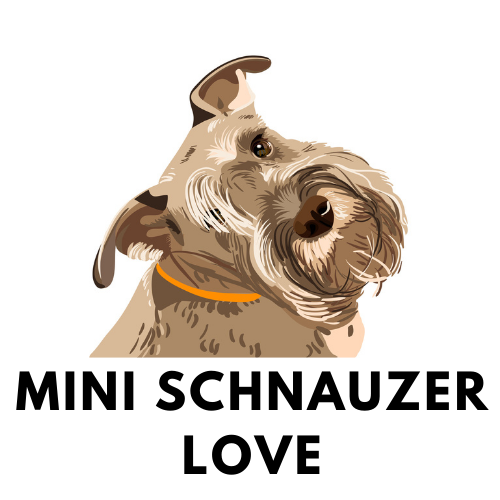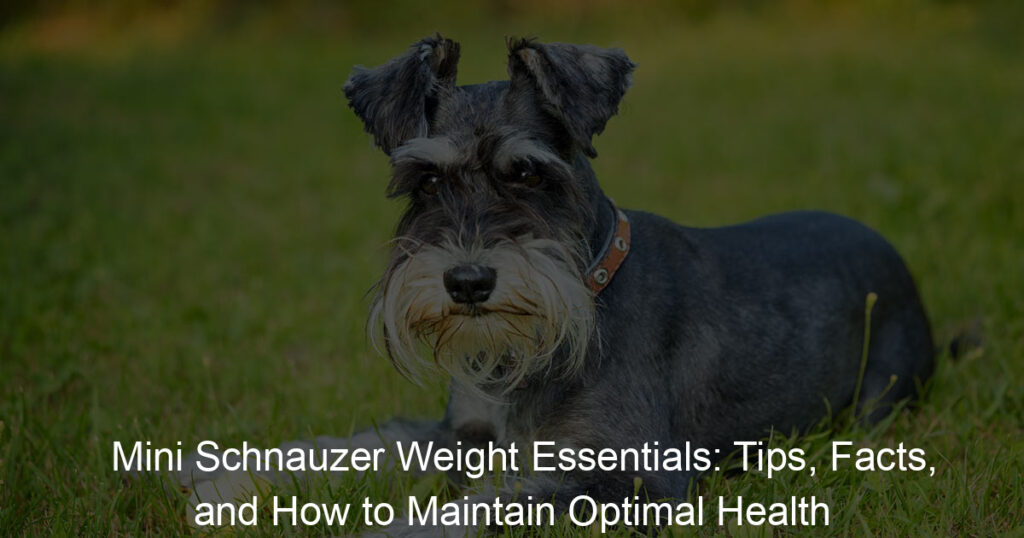Your Mini Schnauzer is more than just a pet; it’s a family member. Like any family member, you want to ensure their health and happiness.
One of the key factors in a dog’s well-being is maintaining the right weight.
Understanding and managing your furry friend’s weight is crucial whether you’re a new owner or a seasoned Mini Schnauzer lover.
In this post, we will explore everything you need to know about Mini Schnauzer weight, from recognizing the signs of weight issues to implementing healthy habits to keep them at their best.
Let’s begin this essential journey to your Mini Schnauzer’s optimal health.
The Importance of Healthy Weight in Mini Schnauzers
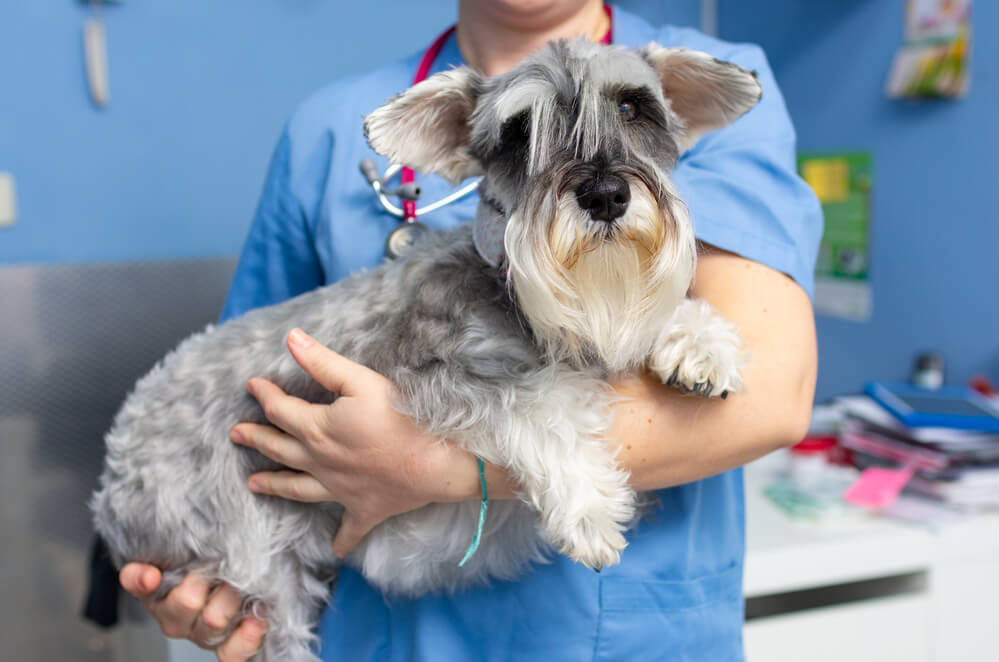
Maintaining a healthy weight is crucial for Mini Schnauzers. The breed is naturally active and energetic, but excessive weight can impact their ability to live a lively, fulfilling life.
Mini Schnauzers at the correct weight are typically more active, have fewer joint issues, and live longer happier lives.
Excess weight can put undue strain on a dog’s body, potentially leading to health problems like diabetes, heart disease, and osteoarthritis.
In contrast, underweight dogs might suffer from malnutrition and weakened immune systems.
Always remember, the quality of your Schnauzer’s life is greatly influenced by its weight health.
Defining Ideal Weight for a Miniature Schnauzer
The ideal weight for a Miniature Schnauzer generally lies between 12 to 20 pounds, depending on the dog’s sex and individual differences.
Male Mini Schnauzers tend to weigh slightly more than their female counterparts.
A healthy weight can also be determined by the dog’s body condition score, a veterinary tool that evaluates the dog’s muscles and fat.
This score helps to assess whether the dog is underweight, overweight, or at an ideal weight. However, this should be performed by a veterinarian or a trained professional for accurate results.
Effects of Overweight on Mini Schnauzer Health
Overweight Mini Schnauzers face an increased risk of several health conditions. These include heart disease, diabetes, and joint issues such as arthritis.
Carrying extra weight can also put a strain on the dog’s respiratory system, making physical activities more challenging.
Further, overweight dogs may suffer from skin and coat problems, have reduced resistance to viral and bacterial infections, and experience lowered life expectancy.
Owners should regularly monitor their Schnauzer’s weight and consult with a veterinarian if sudden changes are noticed.
Spotting Signs of Underweight in Mini Schnauzers

Spotting signs of an underweight Mini Schnauzer includes visible rib bones, spinal column, and pelvic bones.
If your Mini Schnauzer seems less energetic or shows reduced interest in food, it may also indicate being underweight.
Other signs might include a dry or dull coat, lethargy, and visible loss of muscle mass.
It is essential to consult with your vet if you suspect that your dog is underweight, as this could be a symptom of an underlying health issue.
Common Causes of Weight Fluctuation in Mini Schnauzers
Weight fluctuation in Mini Schnauzers can be due to several reasons.
These may include changes in diet, level of physical activity, or health conditions such as thyroid issues, diabetes, or digestive problems.
Changes in a dog’s environment or routine, stress, and aging can also affect their weight.
Remember, any sudden or significant weight change should be addressed with your vet to rule out potential health concerns.
Influences of Genetics on Mini Schnauzer Weight
While diet and exercise are crucial, genetics also play a role in a Mini Schnauzer’s weight.
Certain genes can affect how a dog’s body processes food, influencing their weight and propensity for weight gain.
Though you can’t change your Mini Schnauzer’s genetics, being aware of this factor can help you manage their weight more effectively by adjusting their diet and exercise regime.
Nutritional Requirements for Maintaining Mini Schnauzer Weight
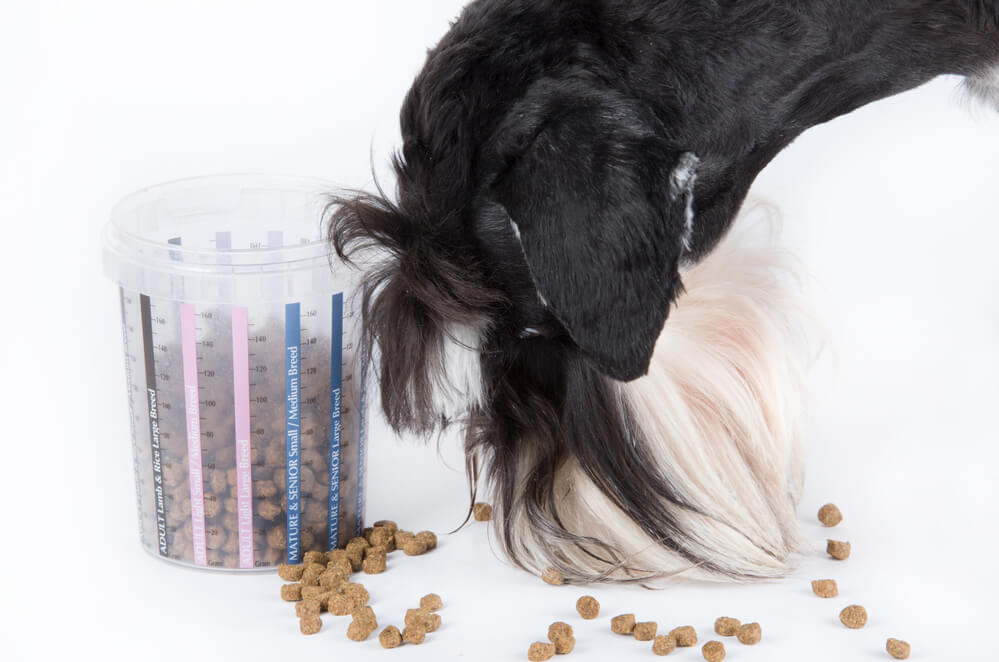
The nutritional needs of Mini Schnauzers can vary depending on age, activity level, and overall health.
They typically require a balanced diet of proteins, fats, and carbohydrates, with a special emphasis on high-quality proteins for muscle development.
Avoid dog foods high in fillers and artificial additives, as they may lead to unnecessary weight gain.
Portion control is also crucial – feed your dog according to their weight, age, and activity level to prevent overfeeding.
The Role of Exercise in a Mini Schnauzer’s Weight Management
Regular exercise is critical in maintaining a Mini Schnauzer’s weight. It helps burn off excess calories, keeps the dog’s metabolism running smoothly, and helps build lean muscle.
Moreover, exercise keeps a Mini Schnauzer physically fit and mentally stimulated and helps manage their energetic behavior.
The exercise can be in the form of daily walks, playtime, agility training, or other forms of physical activity.
Consulting with a Vet About Your Mini Schnauzer’s Weight
Regular veterinary check-ups are important to monitor your Mini Schnauzer’s weight.
Your vet can provide specific recommendations on maintaining your dog’s weight, including adjusting their diet or increasing their exercise.
The vet can also detect early signs of health issues that might affect the dog’s weight.
Never hesitate to consult with your vet if you notice significant changes in your dog’s weight or eating habits.
Special Considerations for Mini Schnauzer Puppies and Weight

Mini Schnauzer puppies require a different approach to weight management. They are growing and thus need a nutrient-rich diet to support their development.
Puppies should be fed small, frequent meals. However, overfeeding can lead to rapid weight gain and future obesity.
A vet can guide you on appropriate feeding schedules, portions, and dietary changes as your puppy grows.
Senior Mini Schnauzers: Weight Maintenance and Health
Senior Mini Schnauzers may experience changes in metabolism and physical activity levels, affecting their weight.
They might need fewer calories and more fiber and quality proteins in their diet. Regular, gentle exercise can help maintain a healthy weight and manage age-related conditions.
Regular vet check-ups are crucial at this stage to monitor weight changes and associated health conditions.
Creating a Balanced Diet for Your Mini Schnauzer
Creating a balanced diet for your Mini Schnauzer means providing meals that fulfill all their nutritional needs.
This includes high-quality proteins, healthy fats, carbohydrates, and essential vitamins and minerals.
The food should also be appropriate for your dog’s age, weight, and activity level.
Remember, treats should make up no more than 10% of your Mini Schnauzer’s daily caloric intake.
How to Monitor Your Mini Schnauzer’s Weight Effectively
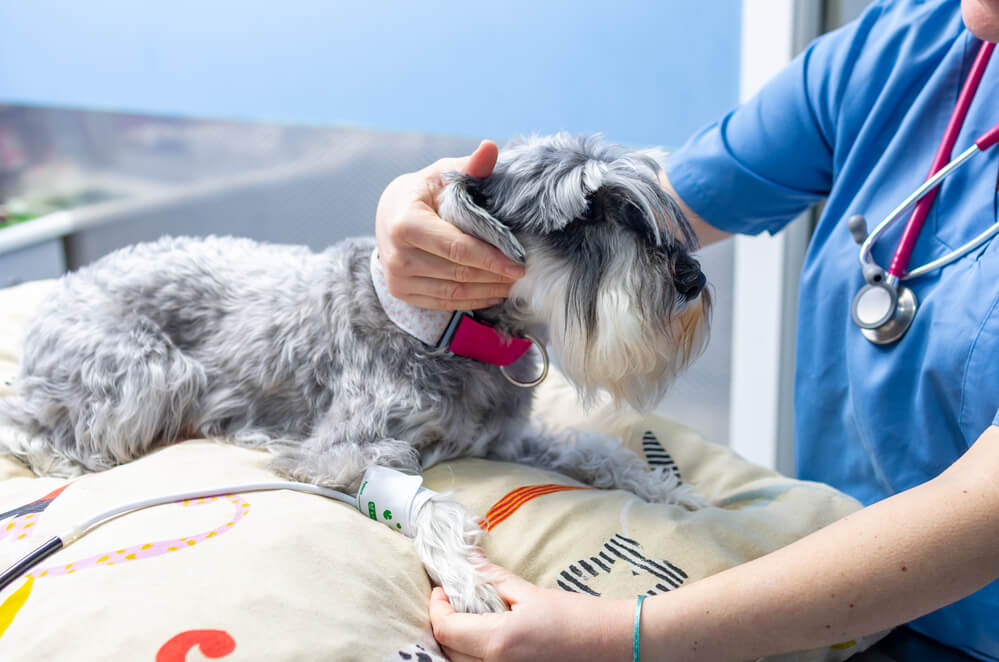
Monitoring your Mini Schnauzer’s weight involves regular weighing and visual assessment. You can weigh your dog at home or during vet visits.
Visual assessment includes checking if the dog’s waist is visible when viewed from above and if the ribs can be felt under a slight fat layer.
Remember, significant weight changes should be reported to the vet immediately.
Adopting Healthy Habits for Your Mini Schnauzer’s Optimal Weight
Adopting healthy habits for your Mini Schnauzer’s weight involves maintaining a balanced diet, regular exercise, and routine vet check-ups.
Avoid giving table scraps and manage treats to prevent overfeeding. Encourage regular playtime and physical activity.
Also, educating yourself about your dog’s health is essential to identify any potential issues early.
Tips for Helping Your Mini Schnauzer Reach a Healthy Weight
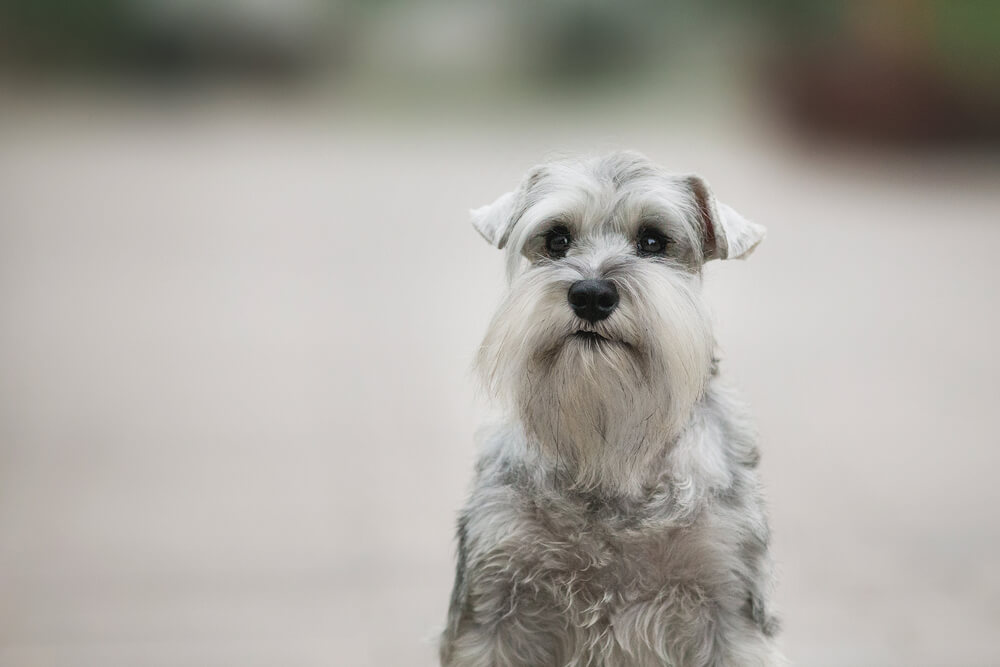
To help your Mini Schnauzer reach a healthy weight, start by setting a weight goal in consultation with your vet.
Feed balanced, portion-controlled meals and limit treats. Ensure your dog gets regular exercise.
Monitor their weight and body condition regularly, and make adjustments to their diet or exercise routine as needed.
Most importantly, stay patient and consistent in your efforts, as healthy weight loss or gain is a gradual process.
Weight Management for Mini Schnauzers
| Age Group | Ideal Weight Range | Daily Caloric Need | Exercise Requirement |
| Puppy | 3-8 pounds | 400-800 calories | Moderate-High |
| Adult | 12-20 pounds | 450-700 calories | Moderate |
| Senior | 12-20 pounds | 400-600 calories | Low-Moderate |
In the end,
Your Mini Schnauzer’s weight is very important.
It affects how healthy and happy they are.
If your dog is too heavy or too light, they can get sick.
Giving your Mini Schnauzer the right food, ensuring they get enough exercise, and taking them for regular check-ups at the vet can help keep their weight in check.
It’s also a good idea to keep an eye on their weight yourself.
If you notice any big changes, you should talk to your vet.
Looking after your Mini Schnauzer’s weight is a great way to show them how much you care.
Doing these things can help your Mini Schnauzer live a long and happy life.
